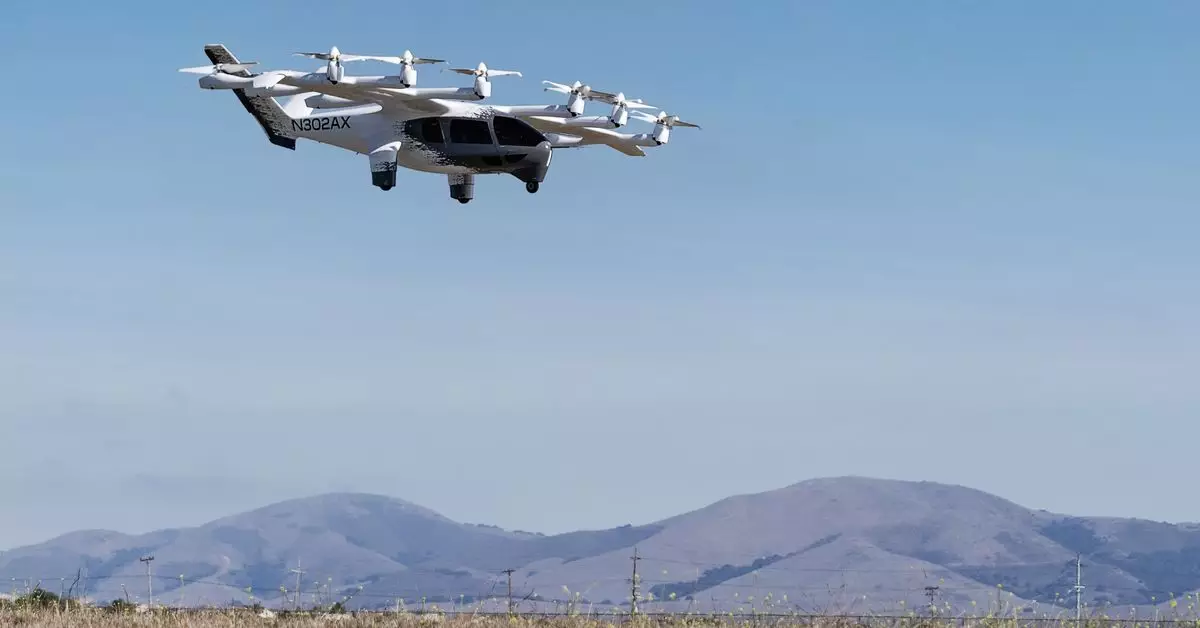The landscape of aviation is undergoing a transformative shift, particularly in the realm of electric vertical takeoff and landing (eVTOL) vehicles. Companies like Archer Aviation are not only revolutionary in commercial air travel but are also stepping boldly into military applications. Archer’s recent strategic moves signal its commitment to melding innovative aviation technology with defense initiatives, a shift that could reshape future military transportation and surveillance capabilities.
Archer Aviation has made headlines by signing an exclusive partnership with Anduril Industries, a leading military technology firm founded by Palmer Luckey. This collaboration aims to co-develop next-generation aircraft tailored for military operations—a significant pivot from Archer’s original focus on civilian air taxis. The financial backing for this ambitious venture is substantial; Archer has recently announced a funding round of $450 million, setting the stage to accelerate its defense capabilities.
What sets this partnership apart is its clear focus on hybrid propulsion systems for military applications. Archer’s initial offering, a hybrid VTOL aircraft, will not only serve as a prototype for future developments but also as a focal point in the company’s bid for contracts with the U.S. Department of Defense. The establishment of Archer Defense, a dedicated internal division, indicates the company’s serious intent to entrench itself within the fabric of the military-industrial complex.
The path to regulatory approval is notorious for its complexities, particularly in a field as novel and intricate as eVTOL aircraft. Archer is making strides toward governmental certifications essential for bringing its electric aircraft to market. Recently, the company delivered one of its Midnight eVTOL models to the U.S. Air Force for evaluation, a significant step that not only validates its technology but also establishes Archer as a contender in military aviation.
Moreover, Archer’s efforts are aligned with the broader industry trend, as several eVTOL companies vie for Federal Aviation Administration (FAA) approval. The recent release of the FAA’s final regulations outlining safety protocols for eVTOL vehicles is a promising development for Archer and its peers, opening doors for compliant and safe operations in U.S. airspace.
Archer is operating in a highly competitive environment, with firms like Joby Aviation, Volocopter, and Beta Technologies all eager to capitalize on the anticipated boom in urban air mobility. While Archer has garnered a significant order from United Airlines and partnered with Stellantis for mass production, the eVTOL landscape isn’t without its challenges. Companies such as Lilium are facing setbacks, demonstrating that not all players will navigate this transformative era successfully.
As Archer moves forward, it must remain vigilant of its competitors and the risks inherent in the volatile tech space. Understanding the technical, regulatory, and market dynamics will be pivotal as it forges ahead with the ambition of scaling operations both domestically and internationally.
Engaging with military technology presents opportunities but also ethical and strategic challenges. While the partnership with Anduril opens avenues for innovation, it also tightens Archer’s ties to defense applications that could provoke public scrutiny over the militarization of technology initially designed for civilian use. Balancing these dual aspects will be critical as Archer navigates this new territory.
Anduril, known for its advancements in surveillance and drone technology, has recently integrated AI into its systems by collaborating with tech giant OpenAI. This intersection of technology and defense emphasizes the growing importance of intelligent systems in modern warfare. Archer must ensure that its innovations serve beneficial purposes while adhering to ethical standards as military collaborations evolve.
Archer Aviation’s pivot toward military aviation through strategic partnerships and significant funding initiatives enables it to capitalize on a burgeoning market. However, as the company charts its course within this uncharted territory, it must navigate regulatory landscapes and ethical considerations to secure its future in a rapidly evolving industry. The potential success of Archer could not only redefine military aviation but could also lead to advancements in civilian air travel, creating a new paradigm for how society views flight.


Leave a Reply